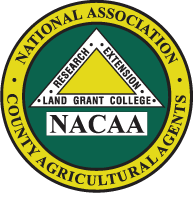Journal of the NACAA
ISSN 2158-9429
Volume 1, Issue 1 - July, 2008
Garden Tillage and Soil Compaction
- Mitchell, C.C., Extension Agronomist-Soils, Dept. Agronomy & Soils, Auburn University
Caylor, A., Superintendent, North Alabama Horticultural Research Center
Elkins, C.B., Soil Scientist (retired), USDA-ARS Soil Dynamic Laboratory
Pinkston, C.B., Regional Extension Agent, Alabama Cooperative Extension System, Cullman County
ABSTRACT
Farmers on sandy, Coastal Plain soils of the southeastern U.S. are aware that tillage can create traffic pans or plow pans. These compacted soil layers can prevent deep rooting of crops. Tillage may also destroy soil structure in soils low in organic matter. The objective of this study was to determine if garden tillage techniques would create similar problems in small vegetable gardens. A series of replicated experiments were conducted over several years at 3 Alabama locations. Master Gardener volunteers in Lee County and Cullman County, Alabama, did most of the work. On sandy, Coastal Plain soils of Central Alabama. intensive soil tillage such as disking, rototilling with a tractor or a garden-type rototiller either created severe traffic pans and/or destroyed soil aggregates which led to surface soil crusting. These techniques resulted in greatly reduced yields of all vegetable crops. Techniques that disrupted or cut through plow pans such as subsoiling, double-digging, or slit tillage increased yields on Coastal Plain soils. On a deep, loamy soil of the Appalachian Plateau in Cullman County (Hartsells loam), we found no differences in vegetable yields due to tillage. No plow pans were detected in these soils.PDF Version
